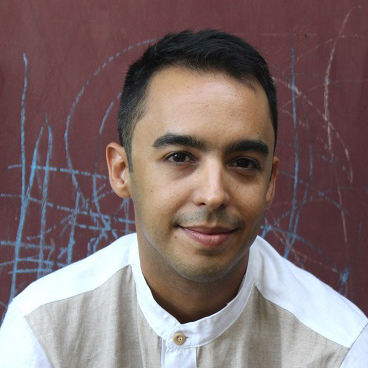
Mr Pablo Garcia de Paredes – Panama
Project: Panama: Evidence, Policy and Inequality during the COVID19 Pandemic
While one of the most unequal countries in the world (14th, CIA World Factbook), Panama is also one of the lowest spending countries with regards to R&D investment to GDP ratio, almost 4 times lower than the regional average. Science is not much part of the local vocabulary and the word “evidence” still has a hard time finding space in the public discourse. Local conditions influence the use of evidence due to a great variation within institutional organization, socio-economic status and environmental typologies. History has transformed the Isthmus of Panamá into many cultural areas, with populations that have different representations of their living spaces, making their response to the Pandemic a perfect case for scientific examination. We hypothesize that patterns in the use of evidence and its framing are indeed recognizable within the context of the economic cycle, social-political cycle (a new president has been elected before COVID) and environmental dynamics.
I intend to examine the case of Panamá’s response to COVID19 using data from a variety of sources. To avoid biases, the proposed mixed-methods approach aims at studying evidence in a systematic way, allocating the same amount of time, attention and resources to each geographical sector.
On Evidence:
Origin and appearance of evidence in the Pandemic’s timeline: I propose to construct a timeline of the introduction of various types and sources of evidence: government, universities, business sector, scientific consultants, local citizen institutions and international institutions (like the WHO, IDB)
Media and communication. All social forms of action have a source within the system of social-spatial representations. These representations could be loosely defined as ways to think about complex systems that are engrained in local culture and hyper-local phenomena. I propose to analyze discourses that circulated= in local newspapers, radio interviews and surveys, to identify if and how evidence is presented on Home and Covid as threat.
Scientific Culture. Evidence is also related to scientific culture. Given an array of disciplines and a general balance of power, I’ll will model the ability of Covid-19 to make visible local scientific culture.
Together with a thorough mapping of the local context on evidence, the project includes data from a variety of sources:
Local Public Databases: many available datasets are currently being updated and access will be negotiated.
Environmental Data recently produced: many multilateral organizations like the Inter-American Development Bank have datasets. Although they are not publicly available, I have worked closely with them during the last year; with a thorough presentation of the project and methods, I will be able negotiate access to some data.
International and Open Access Databases: Google movement data, Oxford Government Response Tracker, Inter-American Development Bank local data on Panamá, Observatories on Covid, etc.
Scientific Data from original surveys: I plan to conduct 10 interviews with key players amongst government, academic, business representatives, scientific consultants, local citizen institutions and international institutions
Results will include recommendations on improving public policy’s evidence channels and a dissemination plan.
Biography:
I was born in Panamá City, Panamá, and after a stay in France during my adolescence, I went to Buenos Aires, where I graduated from Architecture school, earned my MBA and a Professional Business Administration degree. Following a fruitful career in architecture and entrepreneurship, I decided to go all-in on multidisciplinary studies and I’m about to present my Doctoral Thesis at the University of Panamá (Social Sciences Department) with my research focused on spatial representation from an urban sociology perspective.
With the purpose of closing the circle that started with architecture as my point of departure, now I’m enrolled at the PhD program in Architecture at Laval University, Canada, affiliated to the Research Group «Accès à la cité » from the Center for Urban Planning and Development, where I’m currently doing research on Covid and City representations; a study into the new conceptualizations of home and itineraries derived from the COVID19 crisis.
I’m looking for ways to better understand how COVID has affected housing markets and behavior by systematically changing the way we understand our environment. Evidence framing is at the root of these social representations. Results allow for better public policy analysis and targeted action.

